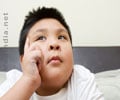A parent’s perception of how obese or ‘normal’ the weight of their child was, determined how much weight was gained by the child over 10 years.
Highlights
- Parents’ views about how heavy or normal their 4- or 5-year-old-child’s weight was found to be associated with how much weight the child gained after a period of 10 years.
- The initial weight of the child might not have been in the obese range but if parents believed that their child was overweight, then it resulted in a negative image.
- The negative image harbored by the child resulted in improper dieting, which resulted in weight gain over a period of 10 years.
TOP INSIGHT
Parents perception influenced weight gain of their child, stressing the need for increased awareness among parents.
The stigma that is associated with being overweight could in fact lead to further weight gain. This could be due to crash diets and extreme exercise routines that the child might not be able to keep up for an extended period of time. This could result in breaking away from diets and binge eating, which leads to additional weight gain.
Assessing Weight Gain
About 2,823 Australian families were included in a longitudinal Australian Children study, which the researche team utilized to understand the pattern of weight gain.The study began when the child was -4 or 5-years-old. The height and the weight of the child was measured. At this stage, parents were asked if they thought that their child was
- Very Overweight
- Overweight
- Normal weight
- Underweight
The height and the weight of the children were measured again when they were 14-or 15-years-old. The study found that the weight of their children as perceived by parents at 4 or 5 years influenced the weight of the children when they were 14 or 15 years.
- A 4-or 5-year-old child was found to gain more weight by the age of 14 or 15 if their parents though they were overweight.
Gender Perspective
This was also associated with the beliefs of the child. When the parents of the child thought they were overweight, there was a higher chance of the child attempting to lose weight. The negative perception and the attempt to lose weight was found to be as likely to occur in a girl as it is likely to occur in a boy. The researchers found that the household income, weight of the parents and the existence of any medical condition were not associated with the increase in weight.Initial Weight and Weight at 14 years
The most startling aspect of the study was that the increase in weight gain was not associated with the initial weight of the child, when the child was 4-or 5-years-old. It is the perception of the parents that played a role in weight gain, which stresses the need to instill positivity in the child by encouraging the consumption of a healthy balanced diet instead of infusing a feeling of negativity in the child. This could lead to attempting in unhealthy weight loss programs, which could later affect the well-being of the child and increase in weight.Growing up in Ireland
As many as 5,886 Irish families underwent the ‘Growing up in Ireland’ study and when the data from these families were examined by the scientists Robinson and Sutin, the same correlation between the perception of the parents on a child’s weight and the resultant weight of the child after a period of 10 years, was noticed.Parents Perception of Childhood Obesity
In a study titled ‘Parental perceptions of weight status of their children’ published in the Journal Arya Atherosclerosis by scientists Sarrafzadegan N and colleagues, it was found that some parents had unreasonably believed that their children were overweight or obese. This was an indication that parents needed to be counseled or made aware of the weight range for normal as well as obesity in children.- 90% of parents were aware about the ill effects of obesity.
- 92% of parents understood or were aware that obesity could be caused due to increased consumption of junk food.
- Only 5% of the parents in the study felt that obese children were healthier than non-obese children.
- When the education level of the father in the family was higher than a high school diploma, they rated their children’s weight as being overweight or obese, lower than fathers who studied less than high school.
- Only 12% of parents attempted aiding their children in losing weight.
- Only 6% enrolled or organized physical or sports activities for the family.
References:
- Eric Robinson, Angelina R. Sutin. "Parents’ Perceptions of Their Children as Overweight and Children’s Weight Concerns and Weight Gain" Psychological Science (2017)
- Parental perceptions of weight status of their children - (https://www.ncbi.nlm.nih.gov/pubmed/23696761)
 MEDINDIA
MEDINDIA





 Email
Email




